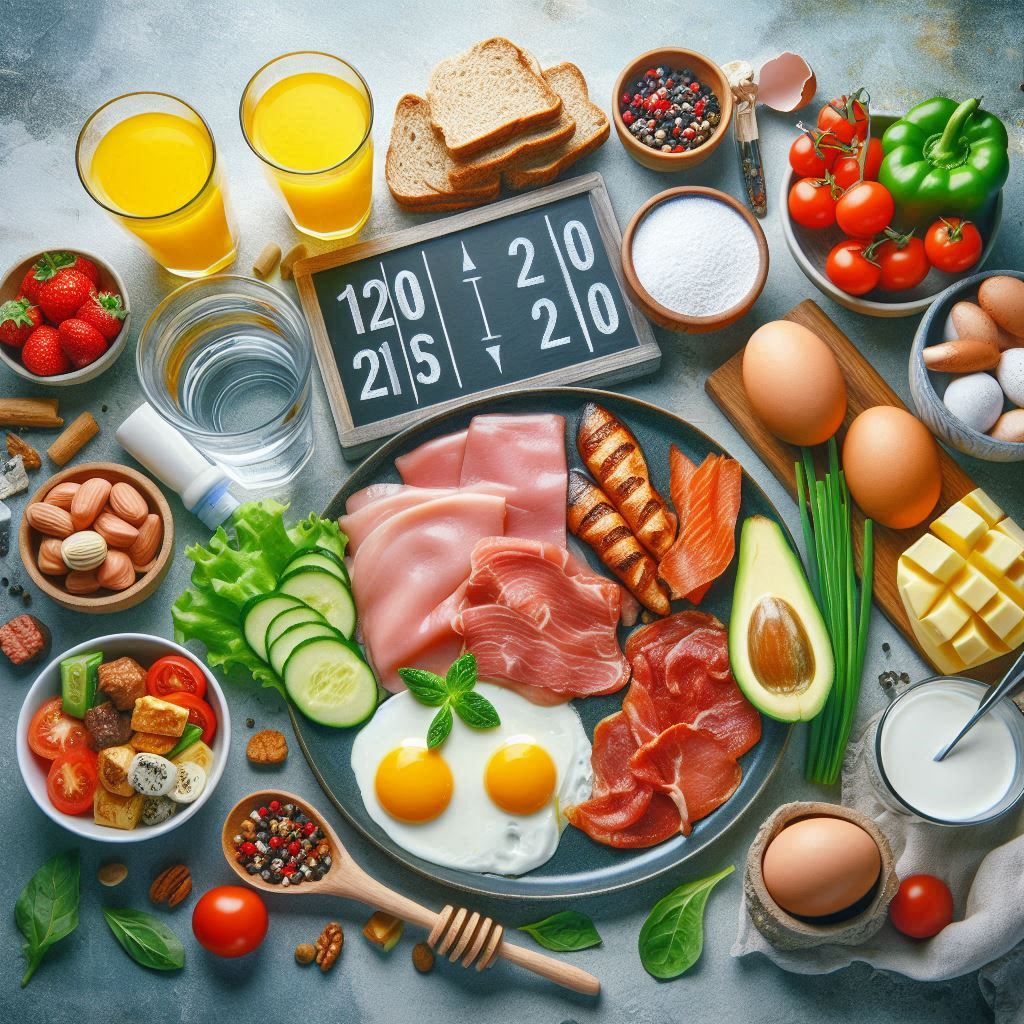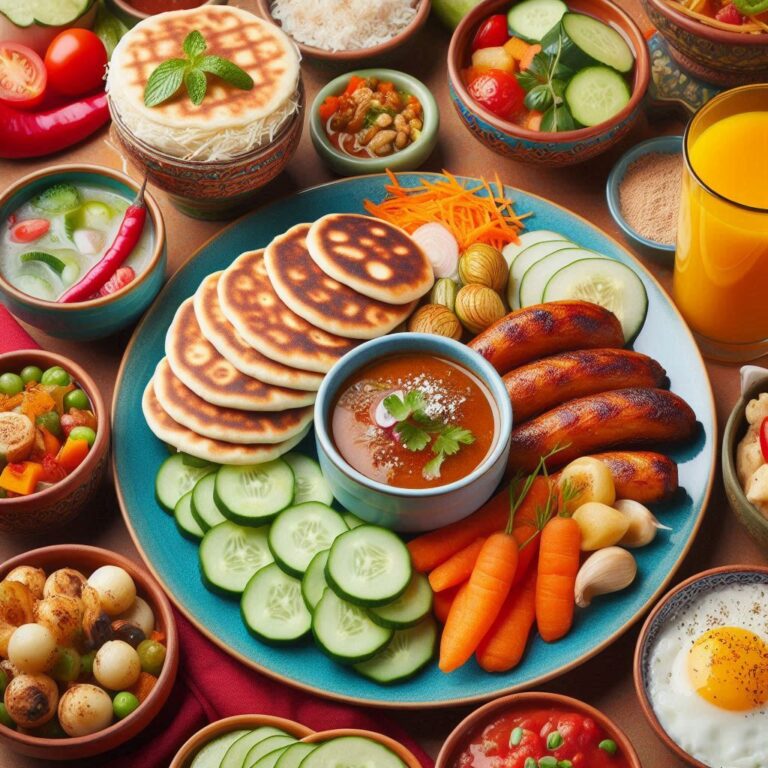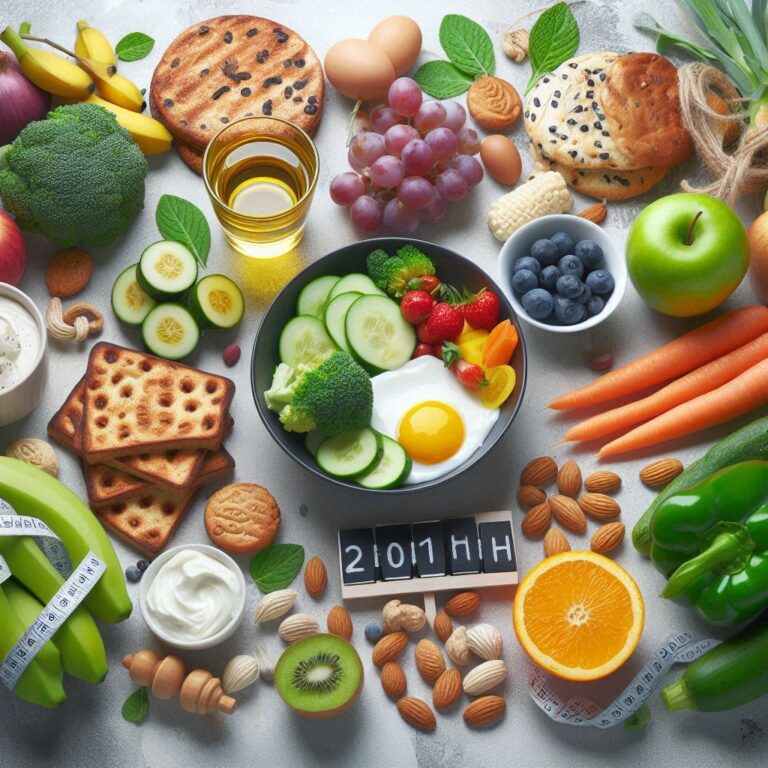The ketogenic diet has become a powerful tool for weight loss and metabolic health. By drastically reducing carbohydrate intake and increasing fat consumption, keto helps the body enter a state of ketosis, where it burns fat for energy instead of glucose. But what happens when you combine the keto diet with calorie restriction, specifically at 1200 calories per day? This article explores the science behind a 1200-calorie keto diet, who it’s best suited for, what foods to eat and avoid, and how to structure a balanced, fat-burning plan.
What Is a 1200-Calorie Keto Diet?
A 1200-calorie keto diet is a low-calorie, high-fat, very low-carb eating plan designed to promote rapid fat loss while maintaining muscle mass. It emphasizes healthy fats, moderate protein, and limits net carbs to about 20-30 grams per day. Since traditional keto doesn’t inherently restrict calories, combining it with a calorie cap intensifies fat-burning potential, making it ideal for individuals aiming to shed fat quickly.
This version of the keto diet is best used as a short-term approach, as prolonged calorie restriction can lead to nutrient deficiencies if not properly managed.
Benefits of a 1200-Calorie Keto Diet
1. Accelerated Fat Loss: Combining ketosis with a calorie deficit increases the rate of fat oxidation. 2. Appetite Suppression: Ketones produced during ketosis naturally suppress hunger, making it easier to stick to a low-calorie plan. 3. Improved Insulin Sensitivity: Lower carbohydrate intake helps regulate blood sugar and insulin levels, reducing the risk of insulin resistance. 4. Enhanced Mental Clarity: Many keto followers report better focus and fewer brain fog moments. 5. Easier Short-Term Compliance: A 1200-calorie plan can be a manageable short burst to kickstart a fat-loss journey.
Is 1200 Calories Safe on Keto?
For many sedentary women or smaller-framed individuals, 1200 calories may be a safe and effective short-term calorie target. However, it is not suitable for everyone.
You should avoid a 1200-calorie keto diet if you:
- Are pregnant or breastfeeding
- Have a history of eating disorders
- Are highly active or training intensely
- Have certain medical conditions (consult your doctor)
It’s also essential to ensure nutrient density. When eating fewer calories, every bite must count.
Macronutrient Breakdown of a 1200-Calorie Keto Diet
The keto diet typically follows this macro ratio:
- 70% Fat
- 20-25% Protein
- 5-10% Carbohydrates
For a 1200-calorie plan, this translates roughly into:
- Fat: ~93 grams
- Protein: ~60 grams
- Net Carbs: ~25 grams
Tracking your macros with tools like MyFitnessPal or Cronometer is essential to stay in ketosis while maintaining proper nutrient intake.
What to Eat on a 1200-Calorie Keto Diet
When following a keto diet on a 1200-calorie limit, focus on whole, nutrient-rich foods.
Healthy Fats:
- Avocados and avocado oil
- Olive oil and olives
- Coconut oil and MCT oil
- Nuts and seeds (macadamia, chia, flax)
Proteins:
- Eggs
- Fatty fish (salmon, sardines)
- Chicken thighs
- Grass-fed beef
- Turkey
Low-Carb Vegetables:
- Spinach
- Kale
- Zucchini
- Cauliflower
- Broccoli
Dairy (if tolerated):
- Full-fat cheese
- Heavy cream
- Greek yogurt (plain, unsweetened)
Beverages:
- Water (with electrolytes)
- Black coffee
- Herbal teas
- Bone broth
What to Avoid on Keto (Even in Small Amounts)
The following foods can knock you out of ketosis or spike your insulin levels:
Grains & Cereals:
- Rice, oats, quinoa, wheat, corn
Sugary Foods:
- Soda, candy, desserts, juice
Starchy Vegetables:
- Potatoes, sweet potatoes, corn, peas
High-Carb Fruits:
- Bananas, apples, mangoes, grapes
Hidden Carbs in Packaged Foods:
- “Keto” labeled bars, shakes, and snacks with artificial sweeteners or sugar alcohols
1200-Calorie Keto Meal Plan
Breakfast:
- 2 large eggs scrambled in 1 tbsp butter
- ½ avocado
- 1 cup black coffee (Calories: ~300 | Fat: 26g | Protein: 14g | Carbs: 6g)
Lunch:
- Grilled chicken thighs (3 oz)
- Zucchini noodles sautéed in olive oil (1 tbsp)
- Mixed greens with 1 tbsp vinaigrette (Calories: ~400 | Fat: 30g | Protein: 25g | Carbs: 8g)
Snack:
- Handful of macadamia nuts (1 oz) (Calories: ~200 | Fat: 21g | Protein: 2g | Carbs: 2g)
Dinner:
- Pan-seared salmon (3 oz)
- Creamed spinach with heavy cream (Calories: ~300 | Fat: 25g | Protein: 20g | Carbs: 5g)
Total: 1200 Calories | 93g Fat | 61g Protein | 21g Net Carbs
Grocery List for a 1200-Calorie Keto Diet
Fats & Oils:
- Avocados
- Olive oil, coconut oil, butter, ghee
- Macadamia nuts, almonds
Proteins:
- Eggs
- Chicken thighs
- Salmon
- Ground beef (80/20)
Vegetables:
- Zucchini
- Spinach, kale
- Cauliflower, broccoli
Dairy:
- Cheddar cheese
- Heavy cream
- Greek yogurt (unsweetened)
Others:
- Bone broth
- Electrolyte supplements
- Herbal teas
Tips for Success on a Low-Calorie Keto Plan
- Track Everything: Use food diary apps to ensure you’re hitting your macros.
- Focus on Nutrient-Density: Don’t waste calories on empty foods; choose high-micronutrient options.
- Meal Prep in Advance: Planning avoids temptations and makes it easier to stick to the plan.
- Stay Hydrated: Drink water throughout the day and consider adding electrolytes.
- Listen to Your Body: If you’re extremely fatigued or dizzy, adjust your intake or consult a doctor.
Common Mistakes to Avoid
Too Much Protein: Excess protein can convert into glucose through gluconeogenesis, kicking you out of ketosis.
Too Few Nutrients: Eating 1200 calories of bacon and cheese alone won’t give your body what it needs to thrive.
Forgetting Electrolytes: Sodium, potassium, and magnesium are vital on keto to avoid fatigue and headaches.
Not Measuring Portion Sizes: With such a small calorie allowance, portion control is crucial.
Conclusion
A 1200-calorie keto diet can be an effective short-term strategy for quick and healthy weight loss when done correctly. It combines the metabolic benefits of ketosis with the fat-burning effects of a calorie deficit. By focusing on nutrient-dense, high-fat foods and avoiding common keto mistakes, you can experience noticeable results in a matter of weeks. As always, consult a healthcare provider before making major dietary changes, especially when combining ketosis with significant calorie restriction.




